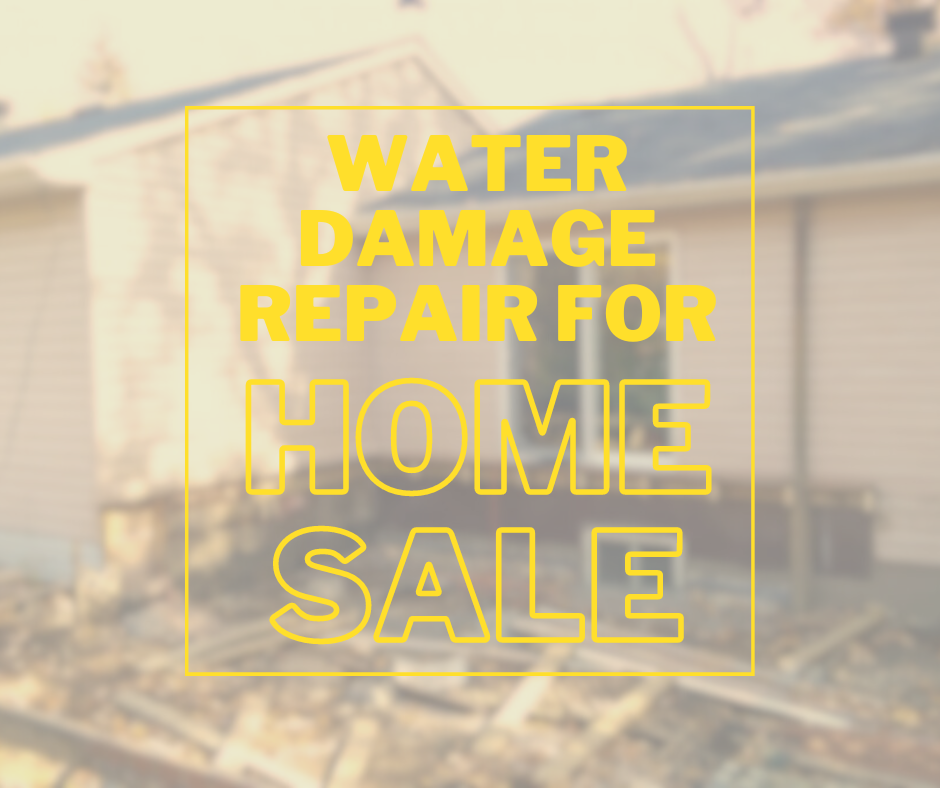Introduction
Selling your home is a significant undertaking, but it becomes even more challenging when your property has experienced water damage. It can stem from various sources, including flooding, leaks, or burst pipes, and it can lead to a multitude of problems. In this guide, we’ll walk you through the essential steps to address water damage before selling your home, ensuring a smooth and successful sale.
Assessing Water Damage
Before you can even think about selling your home, you must assess the extent of the water damage. Ignoring or downplaying can lead to serious issues later in the selling process. Here are some key points to consider:
A. The Need for a Thorough Assessment: Understand that a comprehensive water damage assessment is crucial. It allows you to identify not only visible damage but also hidden issues that may not be immediately apparent.
B. Common Signs of Water Damage: Be aware of common signs such as water stains on walls or ceilings, warped flooring, a musty odor, or visible mold growth.
C. Professional Inspection: It’s highly recommended to hire a professional inspector experienced in water damage assessment. They have the knowledge and tools to uncover hidden problems and assess the overall condition of your home.
D. Potential Issues: Be prepared for the possibility of discovering structural damage, damaged electrical systems, or compromised insulation during the assessment.
Repairs and Remediation
Once you have a clear understanding of the extent, it’s time to address the repairs and remediation needed:
A. Types of Repairs: Discuss the types of repairs often required, such as fixing leaks, replacing damaged drywall, repairing plumbing, and addressing structural issues.
B. Mold Remediation: Highlight the importance of mold remediation if mold is present. Mold can not only affect the sale but also pose health risks to occupants.
C. Costs: Provide readers with an estimate of the costs associated with repairs and remediation. Mention that these costs can vary widely depending on the extent of the damage and the location of the property.
D. DIY vs. Professional Options: Offer insights into whether homeowners can tackle some of these repairs themselves or if it’s advisable to hire professionals.
Disclosure and Legal Considerations
Selling a water-damaged property involves specific legal considerations:
A. Legal Obligations: Explain that sellers typically have a legal obligation to disclose any known water damage to potential buyers.
B. Navigating Disclosure Requirements: Offer guidance on navigating these requirements, including the importance of honesty and transparency in your dealings.
C. Impact on Property Value: Discuss how water damage can impact the property’s value and potential negotiations with buyers.
Hiring Professionals
When dealing with water damage, it’s crucial to work with qualified professionals:
A. Selecting Contractors: Provide advice on selecting qualified contractors for repairs and remediation. Stress the importance of checking references and credentials.
B. Insurance Claims: Explain the role of insurance claims and how to work with insurance adjusters to cover the costs of repairs when applicable.
C. Budgeting: Offer tips on budgeting for repairs and obtaining multiple quotes to ensure a fair price.
Preparing for Home Inspections
Getting your home ready for inspection is a critical step in the selling process:
A. Home Inspection Preparation: Explain how to prepare your property for a home inspection, including cleaning, decluttering, and addressing any outstanding issues.
B. Role of Home Inspectors: Discuss the role of a home inspector and what they look for during their inspection.
C. Addressing Issues: Provide suggestions for addressing any issues uncovered during the inspection to keep the selling process on track.
VII. Marketing a Water-Damaged Property
Successfully marketing a water-damaged property requires a strategic approach:
A. Effective Marketing Strategies: Share strategies for effectively marketing a property with a history of water damage, including high-quality photos and comprehensive property descriptions.
B. Showcasing Repairs: Emphasize the importance of showcasing the repairs and remediation efforts you’ve undertaken.
C. Addressing Buyer Concerns: Mention potential buyer concerns related to water damage and how to address these concerns transparently.
Conclusion
In conclusion, selling a home with water damage can be challenging, but with the right approach, it’s entirely possible to find a buyer and close the deal. Remember to assess the damage thoroughly, make necessary repairs, adhere to legal obligations, work with professionals, prepare for inspections, and market your property effectively. By following these steps, you can increase your chances of a successful sale despite the challenges of water damage.
Here are five frequently asked questions (FAQs) related to selling a house with water damage, along with their answers:
Q1: Can I sell a house with water damage?
A1: Yes, you can sell a house with this, but it’s essential to address it appropriately and disclose it to potential buyers. Ignoring or hiding can lead to legal issues and a failed sale. It’s better to be transparent and make necessary repairs to increase your chances of selling successfully.
Q2: How do I assess the extent of water damage in my home?
A2: Assessing water damage requires a thorough examination. Look for visible signs such as water stains, mold growth, warped flooring, or a musty odor. However, it’s highly advisable to hire a professional inspector with expertise in water damage assessment. They can identify hidden issues and provide a comprehensive assessment.
Q3: How much does it cost to repair water damage before selling?
A3: The cost of repairing water damage can vary widely depending on the extent of the damage, the location of the property, and the types of repairs needed. It’s best to obtain multiple quotes from reputable contractors to get a clear estimate. On average, repairs can range from a few hundred to several thousand dollars.
Q4: Do I need to disclose water damage to potential buyers?
A4: In many jurisdictions, sellers have a legal obligation to disclose any known water damage to potential buyers. Failing to do so can lead to legal consequences and the sale falling through. It’s essential to be honest and transparent about the property’s history, including any past or current situation.
Q5: How can I market a water-damaged property successfully?
A5: Successfully marketing a water-damaged property requires a strategic approach. Highlight the repairs and remediation efforts you’ve undertaken, provide high-quality photos, and create a compelling property description that emphasizes the property’s positive aspects. Be prepared to address buyer concerns about the water damage transparently and offer solutions or documentation to reassure them. Consider working with a real estate agent experienced in selling properties with similar issues for valuable insights.

Ready to make a splash with your property sale? 💦💰 Click here to explore your options and get a cash offer today! 👉 https://desertlily.homes/get-a-cash-offer-today/
